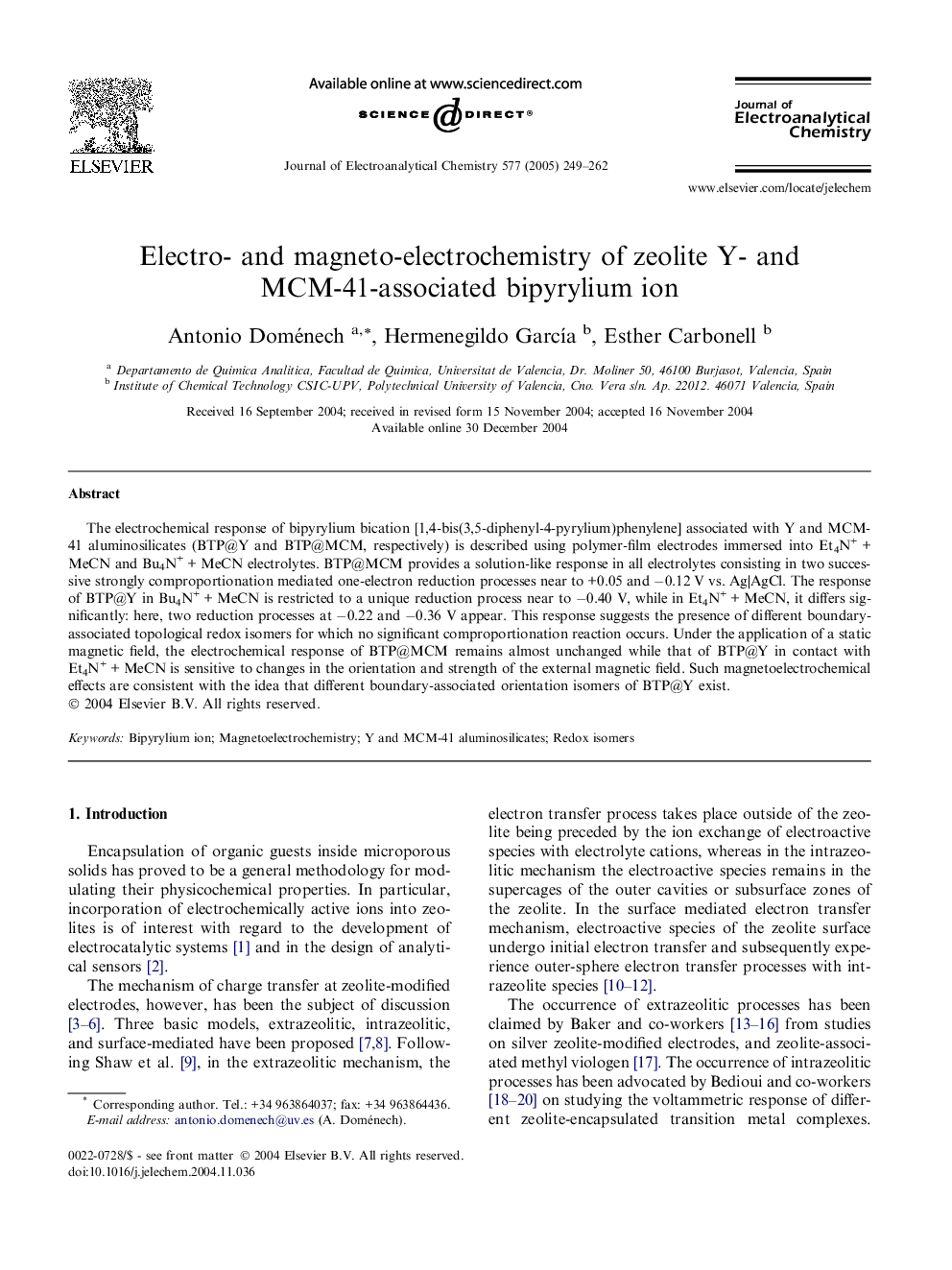| Article ID | Journal | Published Year | Pages | File Type |
|---|---|---|---|---|
| 10276083 | Journal of Electroanalytical Chemistry | 2005 | 14 Pages |
Abstract
The electrochemical response of bipyrylium bication [1,4-bis(3,5-diphenyl-4-pyrylium)phenylene] associated with Y and MCM-41 aluminosilicates (BTP@Y and BTP@MCM, respectively) is described using polymer-film electrodes immersed into Et4N+Â +Â MeCN and Bu4N+Â +Â MeCN electrolytes. BTP@MCM provides a solution-like response in all electrolytes consisting in two successive strongly comproportionation mediated one-electron reduction processes near to +0.05 and â0.12 V vs. Ag|AgCl. The response of BTP@Y in Bu4N+Â +Â MeCN is restricted to a unique reduction process near to â0.40 V, while in Et4N+Â +Â MeCN, it differs significantly: here, two reduction processes at â0.22 and â0.36 V appear. This response suggests the presence of different boundary-associated topological redox isomers for which no significant comproportionation reaction occurs. Under the application of a static magnetic field, the electrochemical response of BTP@MCM remains almost unchanged while that of BTP@Y in contact with Et4N+Â +Â MeCN is sensitive to changes in the orientation and strength of the external magnetic field. Such magnetoelectrochemical effects are consistent with the idea that different boundary-associated orientation isomers of BTP@Y exist.
Keywords
Related Topics
Physical Sciences and Engineering
Chemical Engineering
Chemical Engineering (General)
Authors
Antonio Doménech, Hermenegildo GarcÃa, Esther Carbonell,
